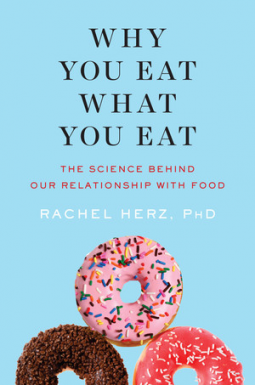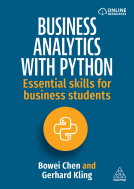
Why You Eat What You Eat
The Science Behind Our Relationship with Food
by Rachel Herz
This title was previously available on NetGalley and is now archived.
Send NetGalley books directly to your Kindle or Kindle app
1
To read on a Kindle or Kindle app, please add kindle@netgalley.com as an approved email address to receive files in your Amazon account. Click here for step-by-step instructions.
2
Also find your Kindle email address within your Amazon account, and enter it here.
Pub Date 26 Dec 2017 | Archive Date 30 Nov 2017
Description
Available Editions
| EDITION | Other Format |
| ISBN | 9780393243314 |
| PRICE | US$25.95 (USD) |
| PAGES | 304 |
Featured Reviews
Why You Eat What You Eat is an in-depth look at the science of eating. What causes us to crave certain foods, how do our brains process the sights, smells, and memories of food, and how can/can't we control these urges.
Rachel Herz presents numerous interesting studies that show why we struggle to much to control ourselves around food, even when we have the best of intentions.
Filled with facts and research that can be applied to our own eating, it's a well-written and intriguing read that can help everyone better understand why we eat.
 Ronald P, Reviewer
Ronald P, Reviewer
The term ‘page turner’ is often used to describe a thriller; but in this case, I think that the term adequately describes “Why You Eat What You Eat”. Every page contained a nugget of information gathered from various universities’ social experiments. Food taste, texture, and smell are the determinants that come to mind when deciding what food to eat. But not as clear is the influence that experience, psychology, culture, and memory have on our food eating decisions. These and other proffered factors are greater food eating determinants than the first three primary factors mentioned. Indeed, these other factors program our reaction to the primary determinants. So, a page-turner? Yes! Every page read passed on new knowledge about eating decision-making.
In addition to drivers that shape our eating desires, the author, Doctor Rachel Herz, remarks on the influences that turn us off to eating. This isn’t a diet book, but finding ways to take advantage of eating turnoff factors will help dieters resist acting on their food cravings. These turn off drivers can be used to replace self-forbidden eating delicacies with the propulsion to eat healthier and less. My only criticism of this book is that the author did not spend more time addressing this subject.
It was interesting to note how important our early childhood was to shaping our approach to eating. Taste preferences begin in the womb base on our mother’s diet during pregnancy and continue developing based on the variety of foods offered us during infancy and toddlerhood. Scientific evidence indicates that early childhood preferences, and the experiences enjoyed during that period, are easily recalled later in life with just the odor of an early childhood favored food. I certainly can relate to this based on my experience with certain ‘comfort’ foods and others may have had similar experiences.
The food knowledge this book provided helped me understand my eating preferences. It also provided me with food eating trivia to share at family gatherings. Shared in a way to avoid singling people out or causing embarrassment, this shared knowledge helped share my new-found knowledge on ‘why we eat what we eat’.
Understanding food eating motivators is the primary benefit received from reading this book. I am now more aware of what drives me to eat certain foods and more attuned to my feeling of fullness. This new awareness has helped me deal with my overeating tendencies.
Readers who liked this book also liked:
Bowei Chen; Gerhard Kling
Business, Leadership, Finance, Computers & Technology, Reference






